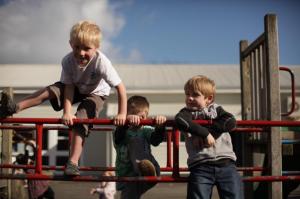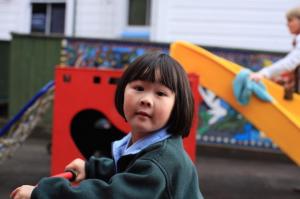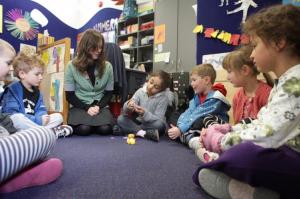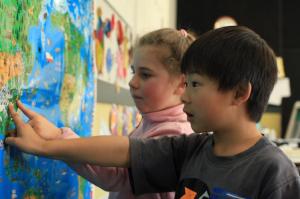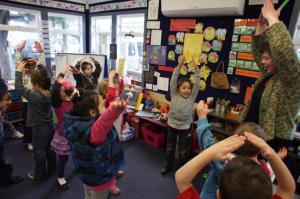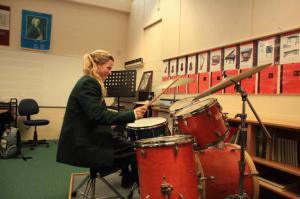NZC Online unpacks the six key insights from the Office of the Children’s Commissioner and the NZ School Trustees Association, Education Matters to Me: Key Insights (January 2018).
“Our education system needs to cater for all of the children and young people of Aotearoa New Zealand. From what we heard, it currently is not. Children and young people are experts of their own experiences in education. They have the right to have a say, and have their views heard in decisions that affect them. Children and young people have a great sense of hope for what education can offer them. It is our job now to listen to them and act on what we hear. Children and young people across a diverse range of engagement groups spoke about three key factors, which they require to have a successful experience in education. These were: a great teacher; a supportive and involved family, and friends.”
OCC, NZSTA
What can we as educators learn from this report? How can we ensure we are catering for all of our tamariki? What should we be asking them?
Six key insights
From the analysis of what children and young people said, the report identified six key insights about how they experience school, and what could be improved in the education system:
1. Understand me in my whole world
He kākano ahau i te wao nui tāngata
Children and young people talked about how they want to be seen for who they are, and to be understood within the context of their home, life, and experiences.
“I am a library, quiet but filled with knowledge – it’s dumb [that I’m not asked].”
Student in alternative education unit
Questions for learners
- Which aspects of school life most excite you?
- What would you change about your school?
- Do your teachers know about your family and what you do outside of school?
- Do your teachers know what your goals are?
- Do your teachers recognise your strengths?
- Do your teachers understand your culture?
- Do you feel supported when things change, or when they go wrong?
Questions for teachers and leaders
- How well do you know your learners? Their strengths? Their whānau? Their goals? Their passions?
2. People at school are racist towards me
He ahurea kaikiri tō te hunga kura
Many children and young people said they experience racism at school and are treated unequally because of their culture.
“Racism exists – we feel little and bad.”
Student in alternative education unit
Questions for learners
- Do you feel welcome at your school?
- Is your name pronounced correctly by your teachers?
- Do you feel you are treated fairly at school?
- Do you think your culture is respected by the teachers at your school?
- Do you think your culture is respected by the students at your school?
- Do you see yourself reflected in the culture of your educational environment?
Questions for teachers and leaders
- How well do you know the cultures of your students?
- How satisfied are you that you/the school uses good processes to identify the cultural strengths of new students?
- How do you welcome students into your classroom/school?
- How important is whakawhanaungatanga (relationship building) in your classroom/school?
3. Relationships mean everything to me
He mea nui te hononga tangata
Children and young people talked about the range of significant relationships that either enable them to achieve or prevent them from achieving. Many said that they cannot begin learning unless they have a trusted relationship with their teacher.
“Good teachers, teachers who are helpful, they make the difference between me achieving and failing.”
Student in alternative education
Questions for learners
- Do you have a trusting relationship with your teacher?
- What are the attributes of a good teacher?
- Do your teachers believe you can achieve at school?
- What helps you to achieve at school?
- What things that teachers do are most valuable to you as a learner?
- What would success at school look like for you?
- What do you think could make changes (between schools/classes) better for students?
Questions for teachers and leaders
- Do you believe all students can achieve?
- What do you do to prepare your learners for change?
- What does success at school look like to you?
- Would you like to be a learner in your classroom/school?
4. Teach me the way I learn best
Whangaia tēnei manu kai matauranga
Children and young people want their teacher to teach them according to their strengths and unique abilities. Learning content was also important, some want to be learning things that they see as relevant to their lives, and their futures.
“When people recognise me and my skills I feel I can do better and achieve more.”
Student in secondary school
Questions for learners
- How well is your school doing to enable you to achieve in the areas where you want to succeed? What are teachers doing now to enable this? What more could teachers do to enable this?
- How relevant is the content to your own life?
- Are you given a choice of what you can learn?
- What aspects of your learning environment do you value?
- What helps you to engage with your learning?
- Does your teacher adapt their teaching to fit your learning style?
- How and when do you learn best?
Questions for teachers and leaders
- How much choice do you give students about what they learn?
- How do you ensure curriculum content is relevant to your students’ lives?
- How do you ensure the learning environment meets all learning needs?
- How well does your school identify barriers to achievement for new students?
5. I need to be comfortable before I can learn
He āhuru mōwai, he ingo matauranga
Children and young people from all different learning environments stressed the importance of feeling happy and comfortable before they can learn and the impact that their learning environment has on their wellbeing.
”At college a teacher would stand over my shoulder, that never happens at TPU, ever!”
Student in teen parent unit, Pākehā
Questions for learners
- Are you proud of your school environment?
- Did you have time to get to know your teacher/s at the beginning of the year?
- Are you comfortable in what you wear to school?
- How does how you are feeling impact on your learning?
- Are there any things that happen at school at the moment, or in the last few months, that make you not want to come to school? What are they?
- What would you change about your school?
- What makes you feel valued at school?
Questions for teachers and leaders
- Do you allow time for students to get to know you? What do you do?
- What do you do to help students to get to know their new surroundings?
- How effectively does your school transition students between levels/classes?
- Do students have choices and are able to express who they are at your school?
- Do students at your school have someone to talk to when things get hard for them?
- How well does your school deal with bullying?
- How well does your school cater for the social needs of students?
6. It’s my life – let me have a say
Whakatūa tōku rangatiratanga
Children and young people experience a lack of choice or participation in decision making about their own lives and schooling. They really want to have a say in their education, and they want teachers to involve them in their learning.
“Teachers being more understanding and actually listening to students’ reasonings for their decisions.”
Secondary school student
Questions for learners
- Do you have the opportunity to express what helps you to be engaged in your learning?
- Do you get support from your school to help you plan for your future?
- Do you feel prepared for your future?
- How do you feel about school most of the time? (I really like going to school; school is OK; I’d rather be anywhere than at school.)
Questions for teachers and leaders
- What opportunities do you give learners to have their say about issues that concern them?
- How well do you listen and act on what students have to say?
- What systems and processes do you have in place to prepare students for their future (for example, options for schooling, career advice).

